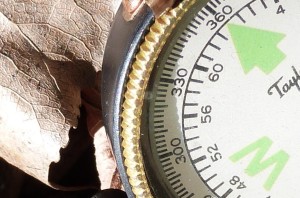 What is it that each of us commonly desire, that each of us might say we yearn for more than anything else? Isn’t it love? Might this yearning for love show up, not only in regard to feeling confident in loving relationships, but in our longing to be who we are? To have the courage to be passionate about being who we are—not just authentic and boldly able to be truth tellers, but able to be vulnerable? To be open enough to receive; expressive enough to extend; fearless enough to take risks in pursuing the lives we feel called to live? All of these desires are addressed in A Course of Love.
What is it that each of us commonly desire, that each of us might say we yearn for more than anything else? Isn’t it love? Might this yearning for love show up, not only in regard to feeling confident in loving relationships, but in our longing to be who we are? To have the courage to be passionate about being who we are—not just authentic and boldly able to be truth tellers, but able to be vulnerable? To be open enough to receive; expressive enough to extend; fearless enough to take risks in pursuing the lives we feel called to live? All of these desires are addressed in A Course of Love.
In our quest for love, why not start with the heart and the heart’s own wisdom? Why not start with recognizing what that is, what it looks like. Feels like. Why not begin with acknowledging desire? It’s part of the wisdom of the heart. So is receptivity. Receptivity is part of the heart’s wisdom, and is one of its ways of knowing. Receptivity allows “what comes.”
“What comes” is very much a matter of feeling—recognizing a feeling. I spoke of a “whoosh” of knowing the other day and a woman said, “I’ve felt that! I’ve just never paid it much attention.” What I described as a “whoosh of knowing” was simply that: A knowing. Something known. That’s what receiving feels like. Something made known to you. When something is made known to you, it does not come attached to anything, does not feel like a result of practice or study or figuring something out. It feels like pure gift. It simply arrives.
Often a knowing is where the great mystery begins. A recent example for me was the knowing that came over me (that’s another hint—a knowing will “come over you”!) as I began the audio recording of ACOL. I knew I would not just record, but that I would “receive” the Course again as I did the recording, and I knew I was to do it in forty days. Now you might think this would mean it would go really smoothly and the purpose would be the recordings themselves. The work has gone okay (not miraculously well) and the eventual audio book will, I’m sure, be a helpful one. But the sense of the knowing is that there is another reason. Another reason for “receiving” the Course again in this way, and another reason for the forty days, and that both are deeply personal to me. I was given this knowing for a reason that has a mystery behind it and is yet to be revealed.
This knowing does not arrive feeling as if it came from me. It feels like it came from a Source beyond me. But I have received it and am in relationship with it. This is the way of the heart’s knowing. It happens in relationship! Our own knowing is what Jesus wants us to realize and pay attention to. He speaks of the privacy of the heart, of love inviolate. He says no one else’s answer is yours. Claim it, he says. Claim your own knowing.* Your answer is your own and it’s available in your own heart. Why in your heart? Because your heart is your place of connection.
A deep, heartfelt connection—to a friend, to nature, to Jesus, to Great Spirit, to a creative endeavor, to an idea that arises—any deep connection is divine and capable of inspiring revelation. It’s nothing fancy. And yet if you’re looking for something more stunning or explicit, you can miss what you already know, what is already there . . . in your own heart.
(See A Course of Love, Chapter 29. I love this: You claim not to own or to separate what you have from what another has and then to call it special. You claim in order to reclaim your Self.” C:29.22)

